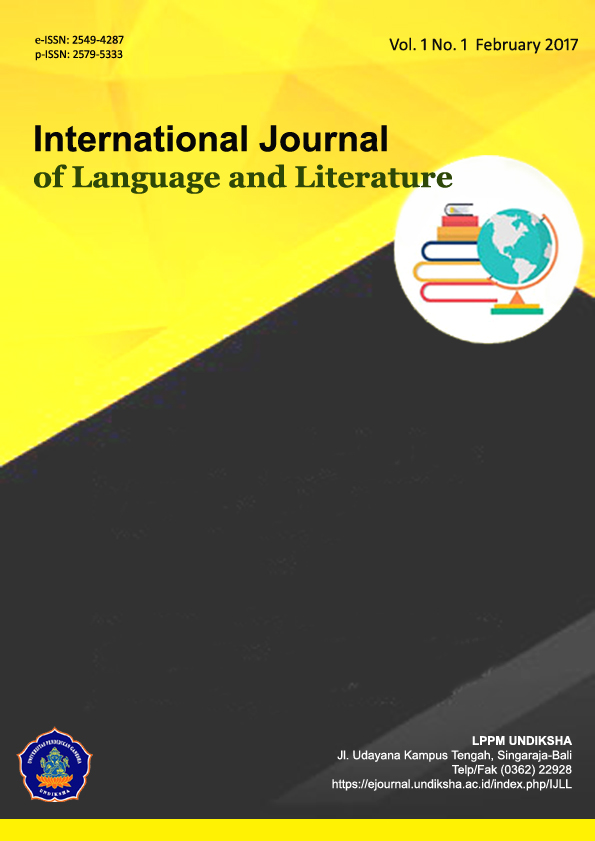IMPLEMENTING DUBBING MUTED VIDEO IN SPEAKING CLASS
DOI:
https://doi.org/10.23887/ijll.v2i2.16095Keywords:
Speaking Achievement, Dubbing Muted VideoAbstract
This Experimental study was aimed at finding out the significant effect of Dubbing Muted Video on the speaking achievement of the eleventh grade students of SMK N 3 Singaraja in academic year of 2015/2016. Post-test only control group was the design of this study. The population of this study was all eleventh grade students of SMK N 3 Singaraja consisted of 108 students and distributed into 4 classes. Cluster random sampling technique was used in order to define which class selected as control group and which class selected as experimental group. Class IX TKJ 2 class was selected as the experimental group, then it was taught by using Dubbing Muted Video method. Meanwhile, Class IX TKJ 1 was selected as the control group, then it was taught by PPP teaching method. Class IX TKJ 2 consisted of 28 students and Class IX TKJ 1 consisted of 27 students. The result of data analysis showed that the students who were taught by Dubbing Muted Video performed better than those who were taught by PPP teaching method. The descriptive statistic analysis result of the students’ speaking achievement showed that the mean score of control group was 77.85, while the experiment group was 83.11 . The result of t-test analysis of the tobswas 2.054 it was higher than the value of the tcv at 2.005 It means that the there is significant effect of Dubbing Muted Video on the students’ speaking achievement.References
Brown, G & Yule, G (1983). Discourse Analysis. Cambridge University Press
Byrne, D. (1986). Teaching Oral English. Longman House.
Fraenkel, J. R., &Wallen, N. E. (1993) How to design and evaluate research in education (2nded). McGraw-Hill
Hughes, A. (2002). Testing for language Teacher, Second Edition,United Kingdom: Cambridge University Press.
Underhill, N (1987). Testing Spoken Language: A Hand Book of Oral Testing Techniques. Cambridge University Press.
Downloads
Published
How to Cite
Issue
Section
License
IJLL Journal provides immediate open access to its content on the principle that making research freely available to the public to supports a greater global exchange of knowledge.

This work is licensed under a Creative Commons Attribution-ShareAlike 4.0 International License







